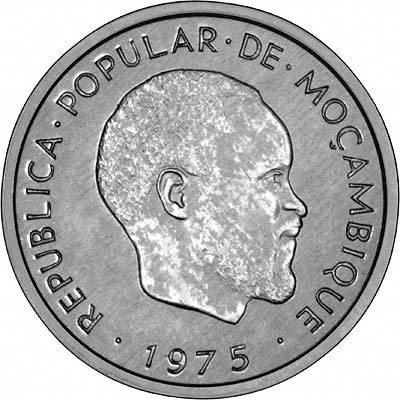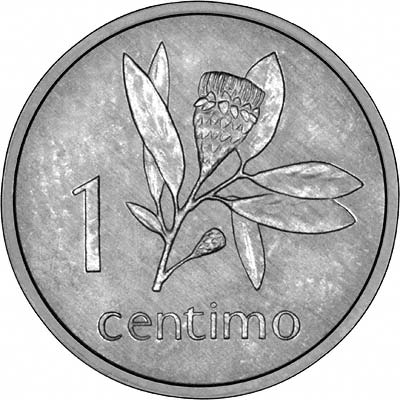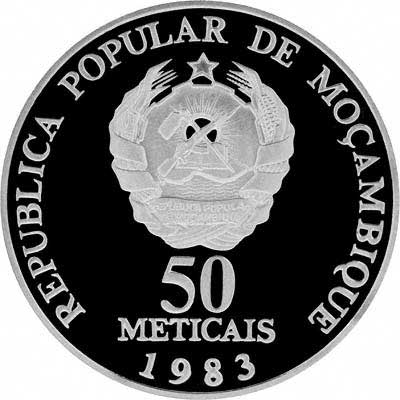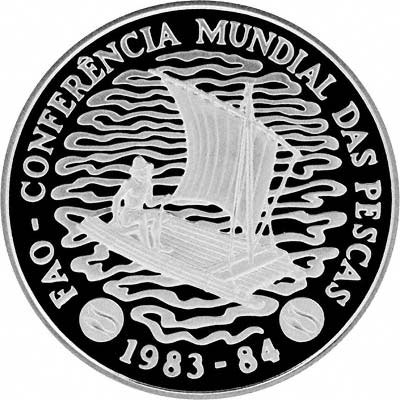| The Very Highest Quality Coins... |
| Brief Mozambican History |
|
 |
|
|
 |
 |
 |
A Brief History
In order to produce this page quickly, we have taken the following verbatim from the excellent Wikipedia, but will edit it later when we have time.
Mozambique's First Inhabitants
Mozambique's first inhabitants were San hunter and gatherers, ancestors of the Khoisani peoples. Between the first and fourth centuries CE, waves of Bantu-speaking peoples migrated from the north through the Zambezi River valley and then gradually into the plateau and coastal areas. The Bantu were farmers and ironworkers.
Discovery by Vasco da Gama
When Vasco da Gama, exploring for Portugal, reached the coast of Mozambique in 1498, Arab trading settlements had existed along the coast and outlying islands for several centuries, and political control of the coast was in the hands of a string of local sultans. Most of the local people had embraced Islam. The region lay at the southernmost end of a traditional trading world that encompassed the Red Sea, the Hadhramaut coast of Arabia and the Indian coast, described in the 1st century coasting guide that is called the Periplus of the Erythraean Sea.
From about 1500, Portuguese trading posts and forts became regular ports of call on the new route to the east. 'Mozambique' first described a small coral island at the mouth of Mossuril Bay, then the fort and town on that island, São Sebastiao de Mocambique, and later extended to the whole of the Portuguese colonies on the east coast of Africa. The square fort at the northern extremity of the island was built in 1510 entirely of ballast stone brought from Portugal.
Spanish Practices
With the decline of Portuguese power, especially during the period when the crown of Portugal was combined with the crown of Spain (1580-1640), the Portuguese coastal settlements were ignored and fell into a ruinous condition. Afterwards, investment lagged while Lisbon devoted itself to the more lucrative trade with India and the Far East and to the colonization of Brazil. Into the 19th century, a system prevailed of dividing the land into prazos (large agricultural estates) which the natives cultivated for the benefit of the European leaseholders, who were also tax-collectors for each district and claimed the tax either in labour or produce, a system that kept the sharecropping farmers in a state of serfdom. Direct Portuguese influence was limited.Slave Trade
On the coast between several native ports of call and Madagascar a large surreptitious trade in slaves was carried on until 1877, supplying slaves for Arabia and the Ottomans. European traders and prospectors barely penetrated the interior regions, until the Transvaal gold rush. The commercial and political importance of Mozambique was eclipsed by Lourenço Marques.
Privatisation
In 1891 the Portuguese shifted the administration of much of the country to a large private company, under a charter granting sovereign rights for 50 years the Companhia de Mocambique, which, though it had its headquarters at Beira, was controlled and financed mostly by the British. The 'Mozambique Company' issued postage stamps and established railroad lines to neighboring countries. It supplied cheap and often forced African labour to the goldmines and plantations of the nearby British colonies and South Africa. Because policies were designed to benefit white settlers and the Portuguese homeland, little attention was paid to Mozambique's national integration, its economic infrastructure, or the skills of its population.Independence
After World War II, while many European nations were granting independence to their colonies, Portugal's dictator Antnio Salazar clung to the concept that Mozambique and other Portuguese possessions were overseas provinces of the mother country, and emigration to the colonies soared (Mozambique's Portuguese population was about 250,000 in 1975). The drive for Mozambican independence developed apace, and in 1962 several anti-colonial political groups formed the Front for the Liberation of Mozambique (FRELIMO), which initiated an armed campaign against Portuguese colonial rule in September 1964. After 10 years of sporadic warfare and Portugal's return to democracy (partially as a result of the expenses from the wars in Angola and Mozambique), Mozambique became independent on June 25, 1975. Democracy however had no roots at all in Mozambique. FRELIMO quickly established a one-party Marxist state and outlawed rival political activity.Civil War
In 1982, Renamo, sponsored by the apartheid government in South Africa launched a series of attacks on transport routes, schools and health clinics, and the country descended into civil war. In 1984, Mozambique negotiated the Nkomati Accord with PW Botha and the South African government, in which Mozambique was to expel the African National Congress in exchange for South Africa stopping support of Renamo. Mozambique complied, but South Africa reneged, and continued to supply the rebels, and the war continued. In 1986, Mozambican President Samora Machel died in an air crash in South African territory. Although unproven, many suspect the South African government of responsibility for his death. Machel was replaced by Joaquim Chissano as president.
In 1990, with apartheid crumbling in South Africa, and support for Renamo drying up, the first direct talks between the Frelimo government and Renamo were held. In November 1990 a new constitution was adopted. Mozambique was a multiparty state, with periodic elections, and guaranteed democratic rights. On the 4th of October 1992 a UN-negotiated peace agreement was signed in Rome between President Chissano and Renamo leader Afonso Dhalkama, which formally took effect on the 15th of October 1992. A UN Peacekeeping Force (ONUMOZ) oversaw a two year transition to democracy. The last ONUMOZ contingents departed in early 1995.Democracy
Mozambique held elections in 1994, which were accepted by most parties as free and fair. Frelimo, under Joaquim Chissano won, Renamo, led by Afonso Dhalkama, as the official opposition. In 1995, Mozambique joined the Commonwealth, becoming the only member nation that was never part of the British Empire. By mid-1995, over 1.7 million refugees who had sought asylum in neighboring countries had returned to Mozambique, part of the largest repatriation witnessed in sub-Saharan Africa. An additional 4 million internally displaced persons had returned to their homes. In 2000, Mozambique held elections for a second time since the civil war, which were again won by Frelimo. Renamo accused Frelimo of fraud, and threatened to return to civil war, but backed down after taking the matter to the Supreme Court (and losing) instead. In 2001, Chissano indicated that he would not run for a third term, serving only until the next elections, due in 2004. He criticised leaders who stay on for longer, which was generally seen as a reference to Zambian president Frederick Chiluba, who at the time was considering a third term, and Zimbabwean president Robert Mugabe, then in his fourth term.
The CIA State:-
Almost five centuries as a Portuguese colony came to a close with independence in 1975. Large-scale emigration by whites, economic dependence on South Africa, a severe drought, and a prolonged civil war hindered the country's development. The ruling party formally abandoned Marxism in 1989, and a new constitution the following year provided for multiparty elections and a free market economy. A UN-negotiated peace agreement with rebel forces ended the fighting in 1992. Heavy flooding in both 1999 and 2000 severely hurt the economy. Political stability and sound economic policies have encouraged recent foreign investment.
Mozambican Coins
Mozambique has issued its own coins only since 1909, and had recently issued a variety of commemorative coins. One of the world's rarest coins is the 1975 One Centimo which has its own page on our website.
| ...at the Official Issue Prices |
|
32 - 36 Harrowside, Blackpool, Lancashire, FY4 1RJ, England.
Telephone (44) - (0) 1253 - 343081 ; Fax 408058; E-mail: info@chards.co.uk The URL for our main page is: https://24carat.co.uk | Web Design by Snoop |